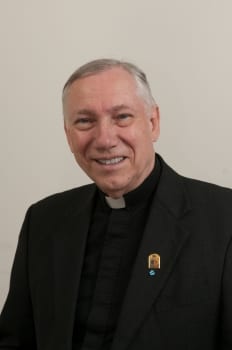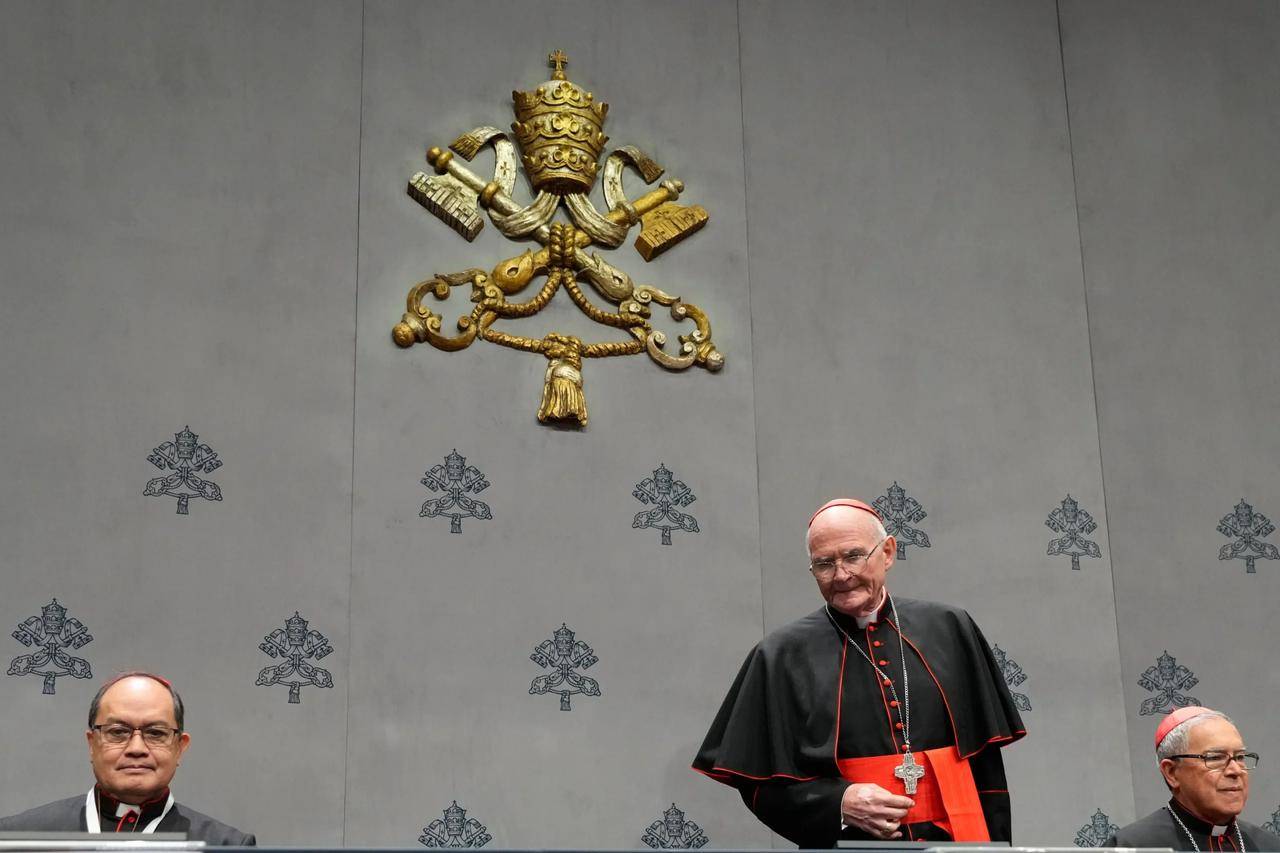In his 1999 apostolic exhortation Ecclesia in America – “The Church in America” – St. John Paul II wrote about the universal call to holiness so central to the Second Vatican Council. He emphasized the importance of conversion, and focused on Jesus Christ himself as “the point of reference and the model to be imitated.”
Father Gary Lauenstein, a Redemptorist, begins his recent book, The Heart of Holiness: Friendship with God and Others,with a quote from the document: “It is Jesus Christ who teaches that the heart of holiness is love.”
So what does that look like? Kathryn Jean Lopez spoke with him about that and the book.
Lopez: There are libraries of books about holiness. What’s different about yours?
Lauenstein: My definition of holiness is “being friends with God and with other people.” The emphasis is on the human experience of being friends with someone.
When I analyzed my experiences of being friends with others, I found that the kinds of behaviors and attitudes which helped me grow in friendship with other people could easily be applied to friendship with God as well. I believe friendship is an experience universally available, and thus becoming holy is a grace universally available.

You mention an anonymous woman who wrote you a note after a mission you preached and what she wrote: “Thank you for your mission. Please preach and teach about self-forgiveness in your next mission. Fifty years ago I had an abortion. I confessed this mortal sin, but I cannot forgive myself. Please help. We do know that the Lord loves sinners. Can he love someone like me?”
Does this just break your heart? And this is a woman who had the courage to go to Confession! What do you say to someone thinking similarly, about this and other sins?
Unfortunately, I have had to talk to many women and some men who precisely felt this way and expressed it in sobs in the confessional. Most priests have heard similar stories, and so when we preach about abortion it is not to uphold some abstract principle. It is to help people avoid real tragedy in their lives.
I am grateful that there are programs such as Project Rachel, which seeks to counsel women suffering from that lingering, awful grief. I have to say that it is very difficult to convince some people that God can forgive them. Perhaps only in their forgiving others will they learn that God can forgive them.
Why do so many people seem to have such a hard time believing in God’s mercy and trusting in it? How can that be helped?
One of the books that has helped me understand faith best is John Knowles’ A Separate Peace. In it, two boys in a boarding school, Gene and Finny, become friends. But as time goes on, Gene begins to have doubts whether Finny truly is a friend. He begins to imagine Finny is simply a ruthless competitor who is trying to prevent him from succeeding in the areas at which Gene is particularly good.
Gene physically and irreparably harms Finny. And astoundingly, Finny forgives him. Finny says something like, “After all, that’s what friendship means, isn’t it?”
Reading that, I realized that faith in God has more to do with trusting God with the direction of our life than believing truths that can’t be proven. In a way, it is the hardest truth to believe: That God will always love us and will always forgive us. But the difficulty comes not in any lack of generosity on the part of God in extending us this love. It comes in lack of generosity on our part in accepting it.
God keeps trying, however.
In the different flavors of Catholicism, you’re a Redemptorist. How did you wind up there? And as a priest? What is the Redemptorist difference?
I became interested in the Redemptorists as a young boy. I was in second grade when Sister marched us children over to church to hear the missionary preach, a Redemptorist. I became so enthralled with that kind of life it stuck in my head, even after I forgot that incredibly difficult name of the Order. My diocesan priest confessor in eighth grade helped me to identify what group that preacher had belonged to whom I had seen.
I went to the seminary in first-year high school, which was the common trajectory for priesthood in those days (1959). Things got bumpy along the way, as I mention in my book. God’s grace, I like to think, prevailed.
The Redemptorists have as our heritage the original concept which the founder, St. Alphonsus Liguori, instilled in us: to look for those people who are most abandoned and to make the Gospel available to them. I don’t think that charism is singular to the Redemptorists, but the Redemptorists certainly emphasize it.
You quote Thomas Aquinas: “The Spirit of holiness is also the Spirit of love and truth. ‘Love’ that is inconsistent with truth is not love.” So what does that mean in a world where there is so much confusion about some very fundamental things?
It’s always puzzling to me why we Catholics get ourselves confused about what the Church teaches. The mechanism for understanding what is fundamental in our faith is part of our faith, that is, guidance from the bishops united to the bishop of Rome. And a lot of that is compiled by those bishops in such things as the Catechism of the Catholic Church.
I understand that there are always new questions and so teaching needs to be clarified, but how we go about doing that is not in question.
I also understand that we might feel we are doing the loving thing by denying some fundamental truth. I think of the Church’s battle against eugenics before the Second World War. Eugenics was the up-coming thing, improving the gene-pool of the whole human race. The Church’s was practically the lone voice against the concept, until Hitler proved what the concept really meant.
“For whatever reason, God considers us lovable. God has lifted us above our nothingness and gives us existence. The fact that he has done so is part of the mystery of love.” How can you be certain that is love, when life can be miserable?
I’ve wondered at times in my own life why God would “afflict” me with life. “After all,” I would say to Him in a particularly depressed mood, “You never gave me the choice!”
I can only say that as my conviction about God’s love for me has grown, my joy in that conviction has also grown. I know that there can be times of suffering when I don’t particularly feel joy, but just the same, there is a peace. There is never a moment in our life when we need live without hope. Even if we are battling a terminal illness, Jesus’ resurrection gives us the hope of a new and better life.
Kathryn Jean Lopez is senior fellow at the National Review Institute and editor-at-large of National Review.












